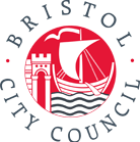New BABCON HIT project aims to improve continence care services affected by COVID-19
- 12th April 2021
A new project looking at the impact of changes to the services that provide care to people with bladder and bowel (continence) problems has been launched by the Bristol Health Partners BABCON Health Integration Team in collaboration with the National Institute for Health Research Applied Research Collaboration West (NIHR ARC West).
Problems with the control of bladder and bowel movements (incontinence) are extremely common and affect people of all ages. The COVID-19 pandemic has changed the services that provide care to adults and children with bladder and bowel problems: for example, telephone consultations have replaced face-to-face appointments, and in some cases, services have stopped altogether.
This project (also known as EPICCC-19) will look at the changes that have been made to community continence services because of COVID-19. Researchers will also survey healthcare providers working in those services to find out what advantages and disadvantages for continence care they have seen from these changes. Find out more about the project here.
Patients using continence services can be vulnerable, including children, older adults and people with learning disabilities. The project will identify those people who have been worst affected by changes to services, because they will require more, or different, support for continence care in the future. Perceived advantages for service users will also be gathered to inform future service provision.
Dr Nikki Cotterill, Associate Professor of Continence Care at UWE, and Director of Bristol Health Partners Bladder and Bowel CONfidence Health Integration Team (BABCON HIT), is the project lead. She says:
“COVID-19 has affected how people access health care in all sorts of ways. Continence care is something that often isn’t talked about, and the changes to services that have occurred have been far-reaching and must be examined, particularly as they could disproportionately affect the most vulnerable people who need support.
“We hope that understanding how well these services are working, and identifying which areas need special attention as services recover after COVID-19, will help ensure that people who need continence care can get it as easily as possible to improve their symptoms.”
The project is also supported by the Elizabeth Blackwell Institute at the University of Bristol.






